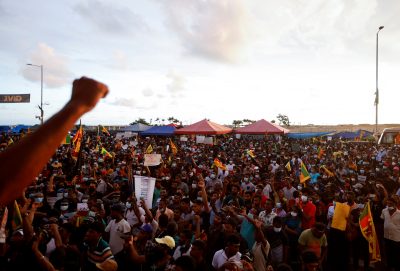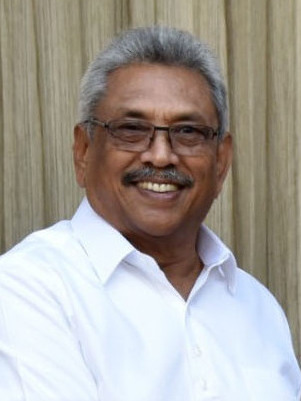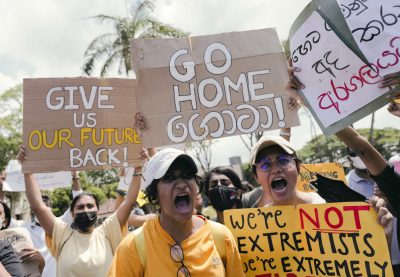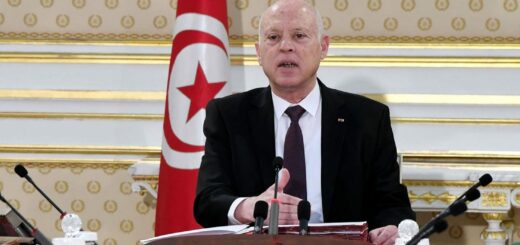Accountability and assistance
Ashok en Florina Xavier kennen Sri Lanka zeer goed omdat ze er jarenlang gewerkt hebben aan de transitie naar vrede. Sinds de laatste totale economische crisis van het land ziet het er vrij uitzichtloos uit. Zolang de internationale instellingen Sri Lanka niet op hun verantwoordelijkheid wijzen in verband met de mensenrechten en het nieuwe (even corrupte) regime ondanks alles met geld blijven steunen, komt er geen licht aan de einder.
The universal periodic review (UPR) takes place twice every year in Geneva as part of the United Nations Human Rights Council (UNHRC). This is a time when countries get to review their human rights record. The process of UPR demands that every country comes up with its human rights performance once every two years and if there are grave human rights violations, any country can sponsor a resolution against it with substantive evidence.
The country responsible gets to defend itself. The motion is submitted for voting. If the motion is able to garner a majority of the votes it is sustained. A list of actions to do is laid out to take responsibility for the actions and it will be reviewed in one year.
Following the end of the war in 2009, Sri Lanka’s case was presented in the UPR. It was sponsored by the USA and called for accountability of the country in terms of the people who went missing during and after the war, internal displacement, undue use of force on civilians, use of banned cluster bombs on civilians and in no fire zones and a host of allegations. These allegations were based on substantial evidence that was gathered and presented by a large number of people who had been through the horrendous times.
Of course, Sri Lanka defended its actions claiming that they were up against the most dangerous terrorist organization in the world. However, nothing could be said about those who voluntarily surrendered and went missing while they were in government custody. This happened to a few people who were part of the militant movement and had voluntarily surrendered themselves to the government after the war for rehabilitation.

The post war divide needed a process of truth commission to reconcile with what had happened. The Sri Lankan government initially resisted it and later agreed with several conditions. The lobby at the UPR was to appoint international observers to ensure the implementation of the commitments.
Sri Lanka resisted any international intervention and committed itself to setting up internal mechanisms. The passage of time informs that the processes and commitments have not gone in the desired direction.
After repeated resolutions passed against Sri Lanka it is back to square one in Geneva this year defending itself and wanting more time to implement the recommendations. Only that this time around the situation of the country is quite different.
It had plunged into a recession fueled by a debt crisis. People were out on the streets protesting for a change of regime that had brought them to this state. The dire situation was a result of clear mismanagement and institutionalized corruption. The economic decline has been attributed a series of bad decisions and ensuing actions since 2017.
The Easter of 2017 witnessed a series of bomb blasts in churches and prominent hotels. This shook the tourism industry of Sri Lanka, which contributes to the large portion of the economic pie. The lack of concerted actions in investigating it and holding people responsible for the attacks did not go well with the international tourist.

The dwindling export garment manufacturing business, decline in the demand for Sri Lankan tea and rubber compounded by deep rooted corruption were clear recipes for the disaster.
To add weight to the sinking ship, COVID 19 struck. The migrant workers who held the economy by their teeth had now lost their jobs or were being laid off in the Middle East. Those who had come home for vacation were unable to return. The combination of export deficit and lack of remittance plunged the economy beyond redemption. India and China extended their support to bail out the country but any help at this stage was seen as too little and too late.
Unable to bear the heat of the protests and wrath of the people, the president fled the country, initially to Maldives, later to Singapore and then to Thailand. He had emailed his resignation from the post of president. (This may be the first of its kind in the world).

A new regime was to take charge. Ironically the one who has now become president failed to win even a single seat in the parliamentary elections. He himself lost the election. Given the representation system in Sri Lanka, he was in the parliament. He also won the vote of confidence of his former foes who had now become friends.
Currently he has brought back most of those who were part of the previous dispensation as part of his cabinet. And there is a witch hunt for the protestors who brought down the president.
Faced with the economic crisis on one hand and the human rights dilemma on the other the case of Sri Lanka was up for review once again at the UPR this year. They had strongly resisted any international interference in their process and had once again promised an effective internal mechanism to deal with the situation.
On the economic front they pleaded their case with the International Monetary Fund (IMF) for loans. They have been going from pillar to post seeking any assistance that is possible. Sadly, they do not want those who are willing to fund to look into the commitments that have been made to the UPR and UNHRC. The IMF is also willing to support the country with a blind eye to human rights and reconciliation.
Unless the global financial institutions hold the country accountable to human rights and durable corruption free mechanisms any assistance will only be a spent force without any result.
The global financial institutions, though they do not have a clean human rights track record need to pay attention to this more carefully as business cannot be as usual when an entire population is being driven to poverty due to bad policy decisions. There is a need to combine both assistance and accountability of all parties concerned to ensure equitable development.
Ashok Gladston Xavier and Florina Xavier
Ashok Gladston Xavier is associate professor in social work at Loyola College, Chennai, Tamil Nadu, India. Florina Xavier is his wife.
Lees verder (inhoud oktober 2022




